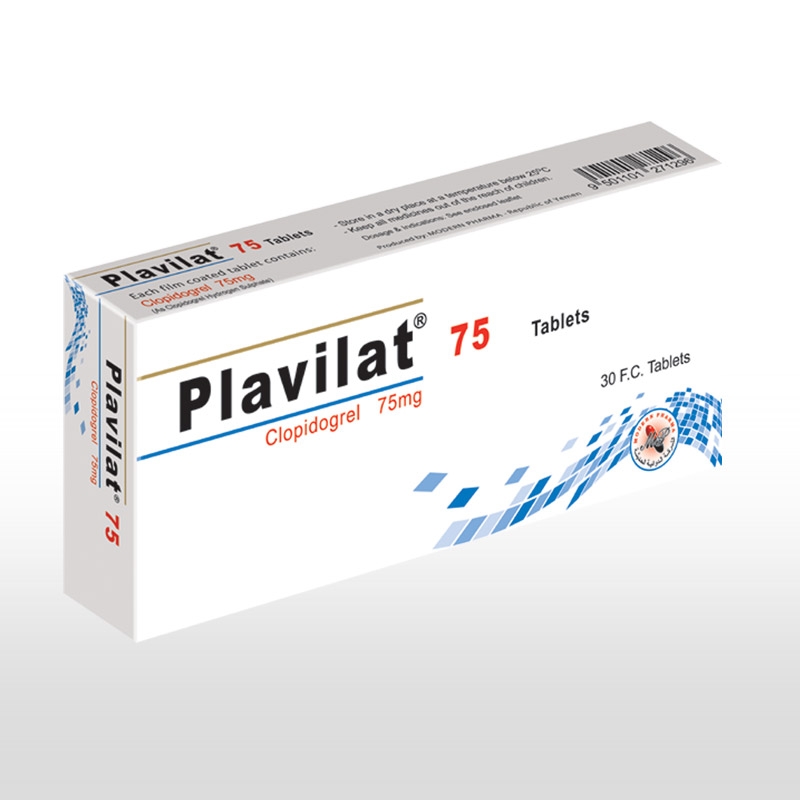PLAVILAT 75
- Clopidogrel selectively inhibits the binding of adenosine diphosphate (ADP) to its platelet
receptor, and the subsequent ADP- mediated activation of the GPllb / llla complex, thereby
inhibiting platelet aggregation. Biotransformation of Clopidogrel is necessary to produce
inhibition of platelet aggregation. It also inhibits platelet aggregation induced by other
agonists by blocking the amplification of platelet activation by released ADP.
- Clopidogrel acts by irreversibly modifying the platelet ADP receptor. Consequently;
platelets exposed to Clopidogrel are affected for the remainder of their lifespan and
recovery of normal platelet function occurs at a rate consistent with platelet turnover.
- Clopidogrel is rapidly absorbed. Absorption is at least 50% based on urinary excretion of
Clopidogrel metabolites.
- Clopidogrel is extensively metabolized by liver and the main metabolite, which is inactive,
is the carboxylic acid derivative which represent about 85% of the circulating compound in
plasma.
- Clopidogrel is highly protein bound.
- Clopidogrel is a prodrug. The active metabolite, a thiol derivative, is formed by oxidation
of Clopidogrel to 2-oxo- Clopidogrel and subsequent hydrolysis.
- Approximately 50% of Clopidogrel is excreted in urine and approximately 46% in the
faeces in the 120 hour interval after dosing. The elimination half Life of the main
circulating metabolite of Clopidogrel was 8 hours after single and repeated administration.


